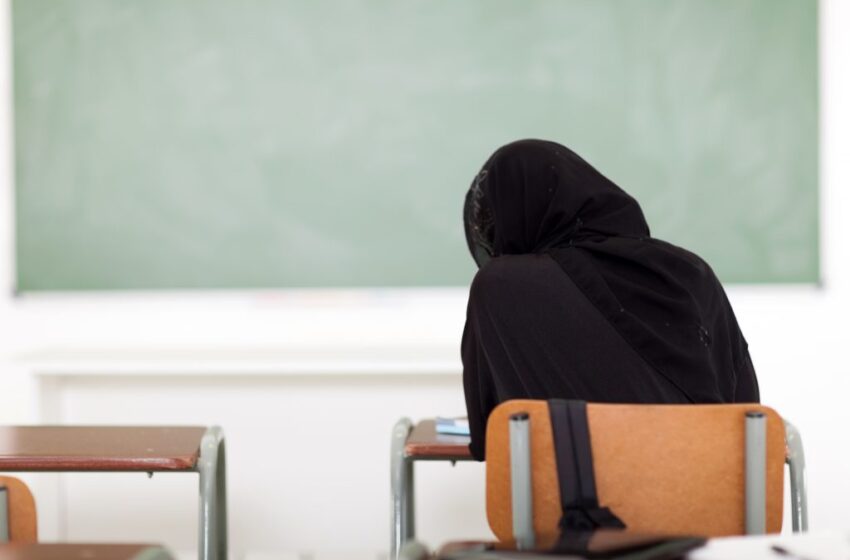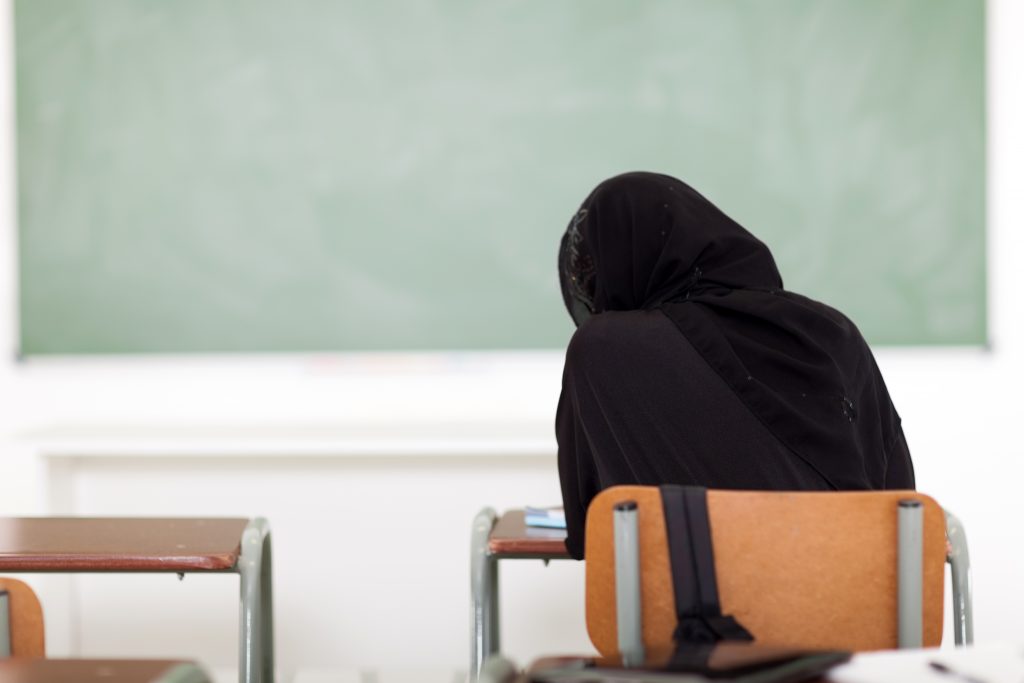
The Reality of Women and Education in Islam

Mahwish Mahwish, Canada
‘O my Lord, Increase me in knowledge’ (The Holy Qur’an, 20:115)
This verse of the Holy Qur’an was revealed by Allah the Almighty over 1400 years ago to the Holy Prophet Muhammad (sa) and emphasises to Muslims how important it is to pray to Allah for intellectual improvement.
Similarly, the Holy Prophet of Islam has said:
‘It is the duty of every Muslim man and every Muslim woman to acquire knowledge.’
This stresses the value of education for all those who practice Islam, whether they are male or female.
Muslim women are typically seen as victims of oppression, deprived of opportunities both educationally and professionally. While it is a sad reality than women have been banned from attending university in Afghanistan since the Taliban took over, it is not fair to judge the whole Muslim world or the religion of Islam on this basis.
The truth is that there are over 50 different Muslim countries with diverse governments and politics that range from liberal to conservative. Afghanistan is an extreme outlier even when it comes to conservative Muslim countries like Saudi Arabia and Iran, which despite their many faults in the realm of women’s rights, not only allow women to participate in higher education but in the case of the former actually have more women than men in their universities. If Islam, God forbid, was a religion that opposed women’s education then why don’t we see bans on women in universities even in the other extremist Muslim theocracies, let alone in any of the more liberal Muslim countries?
Muslim countries like Qatar, Algeria, Tunisia, Jordan, Bahrain and Morocco all have more women than men in higher education. This clearly shows how people’s biases can persist despite accessible information that proves the contrary.
The reality is that pursuing academic excellence for women is ingrained within the very fabric of Islamic teachings. The Holy Prophet’s (sa) wife, Hazrat A’ishah (ra) was regarded as one of the most knowledgeable not just amongst women, but all people of Arabia. This was attested to by the Holy Prophet (sa) who said that one could learn half the faith from A’ishah (ra).
Historical Context
The same spirit of women’s education is evident in Islamic history. Take, for example, the University of Al-Qarawiyyin, which is recognised by UNESCO and the Guinness World Records as the oldest existing and continually operating university in the world. It was founded by Fatima Al-Fihri in 857-859 AD in Fez, Morocco. This educational institute provides knowledge to its students in various fields such as Islamic studies, mathematics and more.
It has been said by the Holy Prophet of Islam Muhammad (peace be upon him), ‘It is said that if a person has two daughters and educates them, then this is enough for that person’s sins to be forgiven and to enter into heaven.’
Today, in accordance with the teachings of Islam, the Ahmadiyya Muslim Community champions the pursuit of knowledge, especially for women. The Fifth Caliph and Worldwide Head of the Ahmadiyya Muslim Community, His Holiness Hazrat Mirza Masroor Ahmad (aba), has stated that access to education was the means of ensuring peace and stability and that Islam emphasised the importance of ensuring that girls were educated and given equal opportunities as boys.
Abdus Salam Qur’an, Education Science and Technology Conference
This spirit of promoting education, including for women, was on display at the recently held annual Abdus Salam Qur’an, Education, Science, and Technology (QuEST) Conference in Canada. This conference is named in honour of Dr Abdus Salam, a theoretical physicist who won a Nobel Prize in 1979 for his contributions to the electroweak unification theory. He was the first Pakistani and the first scientist from an Islamic country to win the Nobel Prize, and remains the only person from an Islamic country to win a Nobel Prize in Physics.
This conference, which brought together scientists and scholars from a wide range of backgrounds and fields, also awarded scholarships to students, recognising their hard work and dedication to the pursuit of education. To award these scholarships at an event honouring a Nobel Laureate sends a clear message. All scholars are expected to see Dr Abdus Salam as their role model and aspire to the same level as him. His Holiness Hazrat Mirza Masroor Ahmad (aba) has said that at least 100 Ahmadi students should follow in the footsteps of Dr Abdus Salam.
The event awarded 26 scholarships, 20 of which were awarded to women. Even the student speakers at the Conference comprised of five women and one man. This event exemplified the accomplishments of women and was a moment of pride for many women at the event.
Personal Stories
One of the 20 female students awarded a scholarship was Dania Rashid, an undergraduate student studying English. Originally a science student, she later decided to change majors after discovering her passion and hidden skill; her mastery of words. Describing the role that faith plays in her studies Dania said, ‘It makes me achieve excellence in my chosen field with bravery and confidence.’ As for the scholarship itself, Dania explains that its significance transcends just the financial support. She stated, ‘The financial support is one thing but it [winning the scholarship] felt like a recognition of my efforts within my community and a sort of collective encouragement from them. It made me feel morally supported as well and served as another reason to give back [to my community].’
Another scholarship winner was Baria Shafiq Khan, a Master of Science student specializing in Astronomy at the University of Western Ontario. The Abdus Salam QuEST Conference is very near and dear to her heart as she inherited her father’s admiration for Dr. Abdus Salam which led her down the path of pursuing physics later in life. Her passion for astronomy was discovered when she took a course on the subject in her second year. The rest, as they say, is history. Baria’s chosen field has been an eye opener for her not just in education, but in her relationship with God. She explained, ‘As an astrophysicist, I see the works of my Creator, I see the attributes of God at play, and as a result, my faith only enriches my education and helps sustain my wonder.’
Conclusion
The stories of Dania Rashid and Baria Khan are more than just individual tales of success, they embody the untold tales of other Muslim women. In a world where Muslim women are viewed as uneducated or intellectually deprived, their achievements are a form of resistance that tells a different tale. Whether it be historical figures like Hazrat A’ishah (ra) and Fatima Al-Fihri, or modern-day women like Dania and Baria, it is clear that Muslim women always have, and always will pursue knowledge.
About the Author: Mahwish Mahwish is a 4th-year English student at the Toronto Metropolitan University. Her academic interests are in diverse literature, cultural studies, and the intersections of identity. Her writing focuses on challenging stereotypes and highlighting the experiences and achievements of marginalised communities as a means for fostering greater understanding and inclusion.



